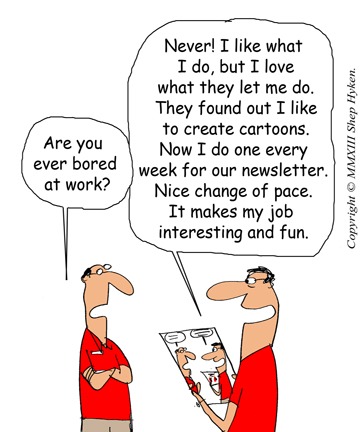 More Engaged Workforce
More Engaged Workforce
The Kimpton hotel chain continues to impress and amaze me. I just had a wonderful stay at their Alexis Hotel in Seattle. The staff was nothing short of amazing. I did some “mystery shopping” for this article by engaging with several of the employees to find out a little about their culture.
One of the first things that impressed me was the longevity of the employees. One of the front desk people had been there for 13 years. Another since the hotel had opened. The concierge had been with Kimpton for a number of years and had transferred to Seattle. One of the servers at their restaurant, and I’ll get back to him in a moment, had only been there three years, but gave me the same answer that the more tenured employees had given me about why they love working at the Kimpton.
The general answer the employees gave me is that they love to service customers and Kimpton has given them the freedom to do so. The lesson here is that Kimpton has created a culture that encourages their employees to meet and exceed their guests’ expectations. Sometimes that means a little extra effort and even spending a little extra money to do so. Service doesn’t always come cheap, but if the result is creating a loyal customer, the investment into the guest’s experience pays off with large dividends.
Carlos is the server in the restaurant I mentioned above. I overheard one of his colleagues complementing him on a video. I asked him about it. He said he loved to create videos. His manager, Jenne Neptune, encouraged Carlos to create a Kimpton video. She gave him permission to film at the hotel and post it to YouTube. Carlos said it meant so much to him that his manager would respect his passion enough to let him use it to serve the hotel.
This is the perfect example of a culture that exploits the uniqueness and the talents of its employees. While hired to work in the restaurant, Carlos was given the latitude of using his talents and passion as part of his job. As he told me his story, you could tell he was beaming with pride over his video project. As a result, Carlos is more appreciative of his job, has great respect for his manager and has an overall sense of fulfillment.
Let’s take a lesson from another very cool company, Google. Google wants its engineers to take 20% of their work-time – that’s one day a week – to focus on company-related projects of their own design. They actually refer to it as “20% Time.” This gives the employees a powerful sense of fulfillment deriving from their lead role in the new concepts being developed. I’m not suggesting that every employee be allowed to work a certain amount of time on self-chosen projects, but this may be very appropriate for some of the people in your organization.
The concept of letting people do what they love and what they’re good at is powerful. It doesn’t have to be 100% of their job, although that would be nice. But there should be a part of everyone’s job that allows them to do what they love to do, exploiting their unique talents along the way. The result is a more engaged workforce that will work for your company, and most important, your customers.



